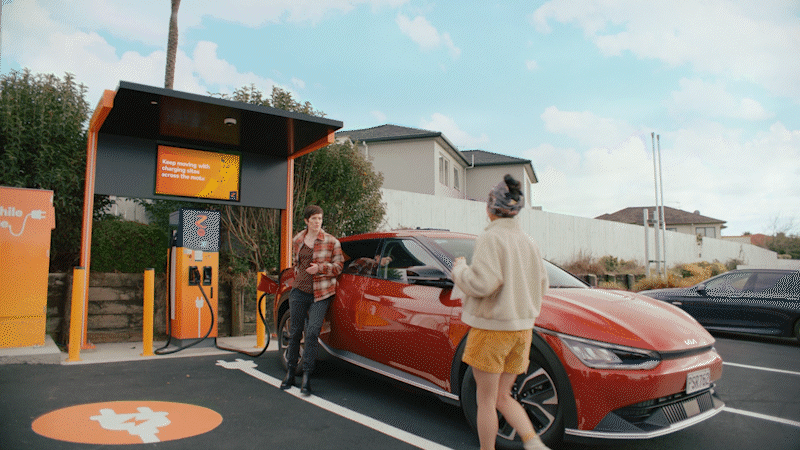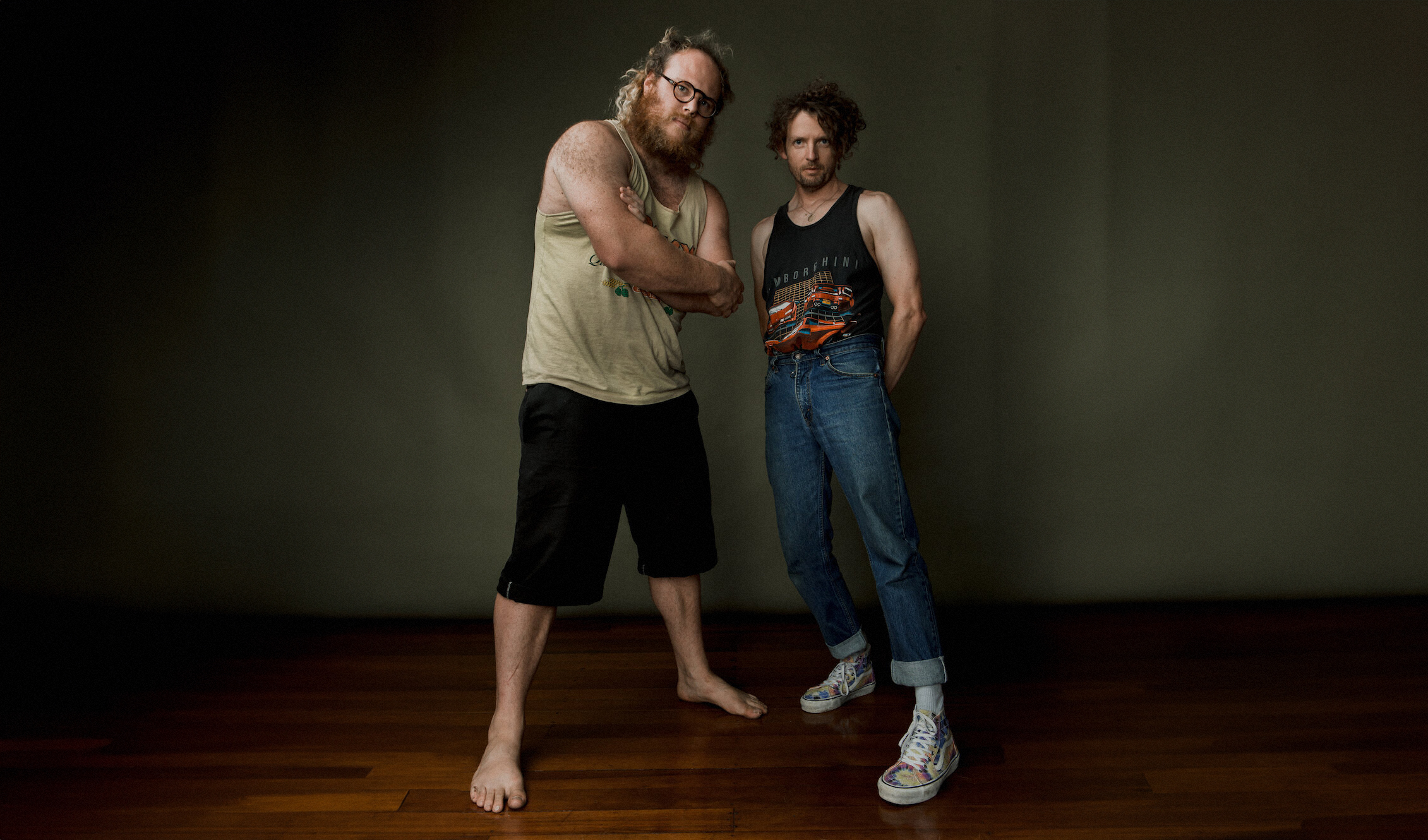
Inside The Mind(s) of THUNDERLIPS
Director Profiles
THUNDERLIPS have made images that have made people LOL, become aroused, feel acutely uncomfortable and say ‘Holy shit is that the sun?!’. The multi-award winning image-making duo share some insights on what makes them tick.
“We find inspiration in limitations, they force you to move laterally, to come up with heaps of alternative ideas.”
SN:
Tell us about a film that inspired you early on. Who or what influenced how you see the world, and how you make images - how you visualise and tell stories
JD:
Sean was raised on '80s action and sci-fi movies taped off Sky Movies by his neighbour. Total Recall, Hellraiser and The Blues Brothers were all on high-rotation. He came of age in the UK during Britpop and New Labour, an intesely optimistic and exciting period, only to see it all crash and burn during the early 2000s in the post 9/11 world of war and globalisation. So he makes art with eaqual measures of optimism and cynicsm through a lens of brightly coloured pop culture.
SW:
Jordan grew up in a series of overseas cults where he developed a love of mythology. He only escaped in his teenage years and became enamoured with the work of David Cronenberg and Abbas Kiarostami. Finally able to grow roots back in Aotearoa, he experiences the world with a childlike naivity which permeates his work and encourages it in his colaborators, allowing a playfulness on set that can yield miraculous results on screen.
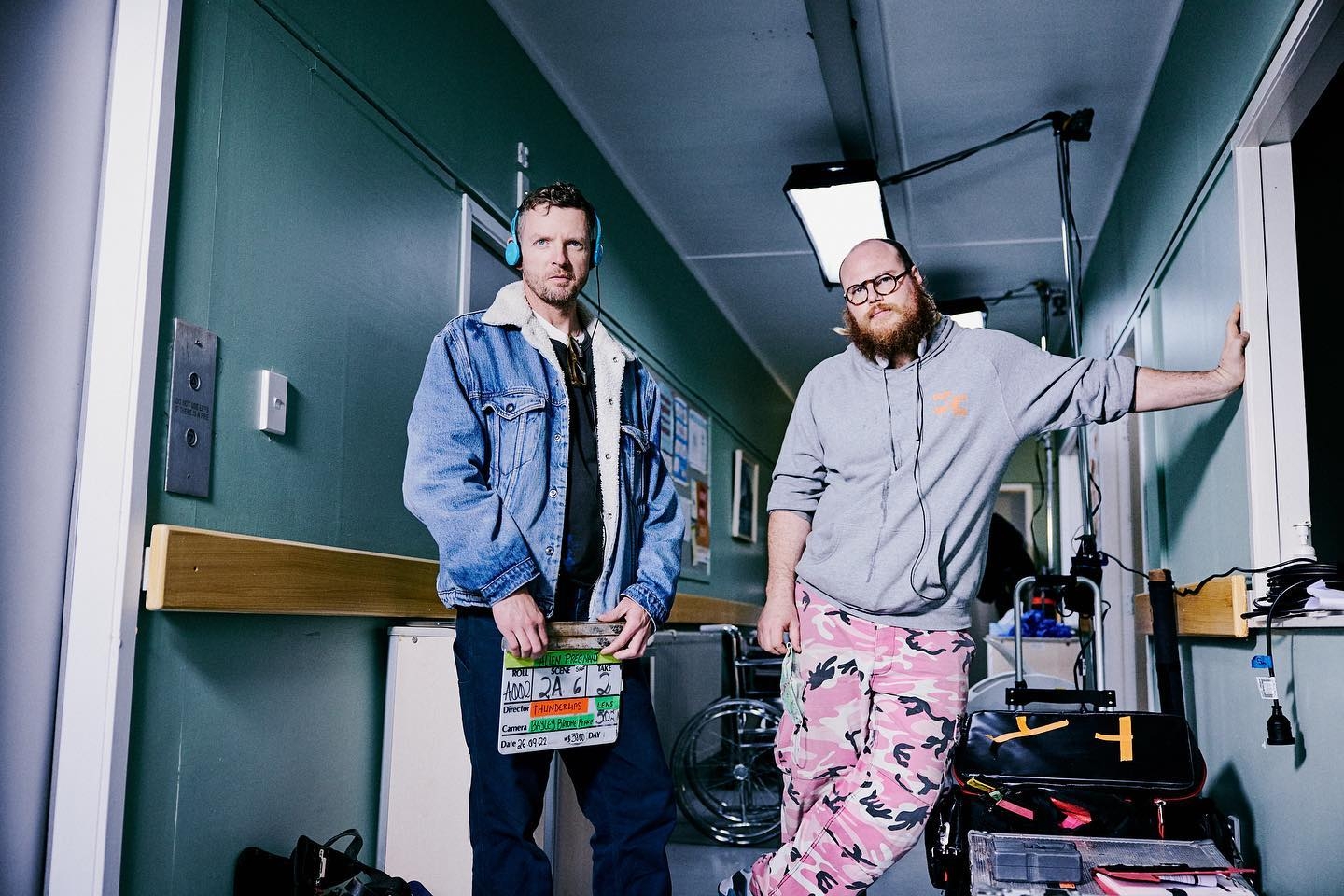
“Sean was raised on '80s action
and sci-fi movies taped off Sky
Movies by his neighbour.
Jordan grew up in a series of
overseas cults where he developed
a love of mythology.“
SN:
How would you describe your style of film-making, simply?
JD:
Precise chaos. We like to prepare meticulously and create an on-set environment that’s so safe that the cast can take big swings and try things. As a duo we can be in two places at once, which we use to maximise limited shoot schedules.
SN:
Give us a few films from your top 10 - the stories that stuck with you, the scenes you can’t forget. And then, give us your favourite ad ever.
JD:
Movies we love include The Big Lebowski, Beau Travail, Alien, the Cronenberg remake of The Fly, and the original Total Recall. Ad-wise we love the irreverence of the OG Skittles Taste the Rainbow work.
SN:
Where / with whom / how do you spend time to be filled? How do you feed your creativity?
JD:
Sean surfs, Jordan gardens. We both love cars and lunch. Jordan (and more recently Sean) write feature film scrips that we hope to direct as THUNDERLIPS. We're both a bit obsessed by film photography shot on our shared Hasselblad.
“Reading feels like it's getting harder
and harder the more our brains get
accustomed to hitherto unimaginable
levels of stimulation... We now need
stimulation even in the realm
of unconsciousness.“
SN:
Someone once famously said: “Creativity is just connecting things. When you ask creative people how they did something, they feel a little guilty because they didn't really do it, they just saw something. It seemed obvious to them after a while.” Is this relevant to you and your craft?
SW:
Imposter syndrome is real, but our process also happens out-loud in conversation (over snacks), which is a bit less mysterious. We find inspiration in limitations, they force you to move laterally, to come up with heaps of alternative ideas.
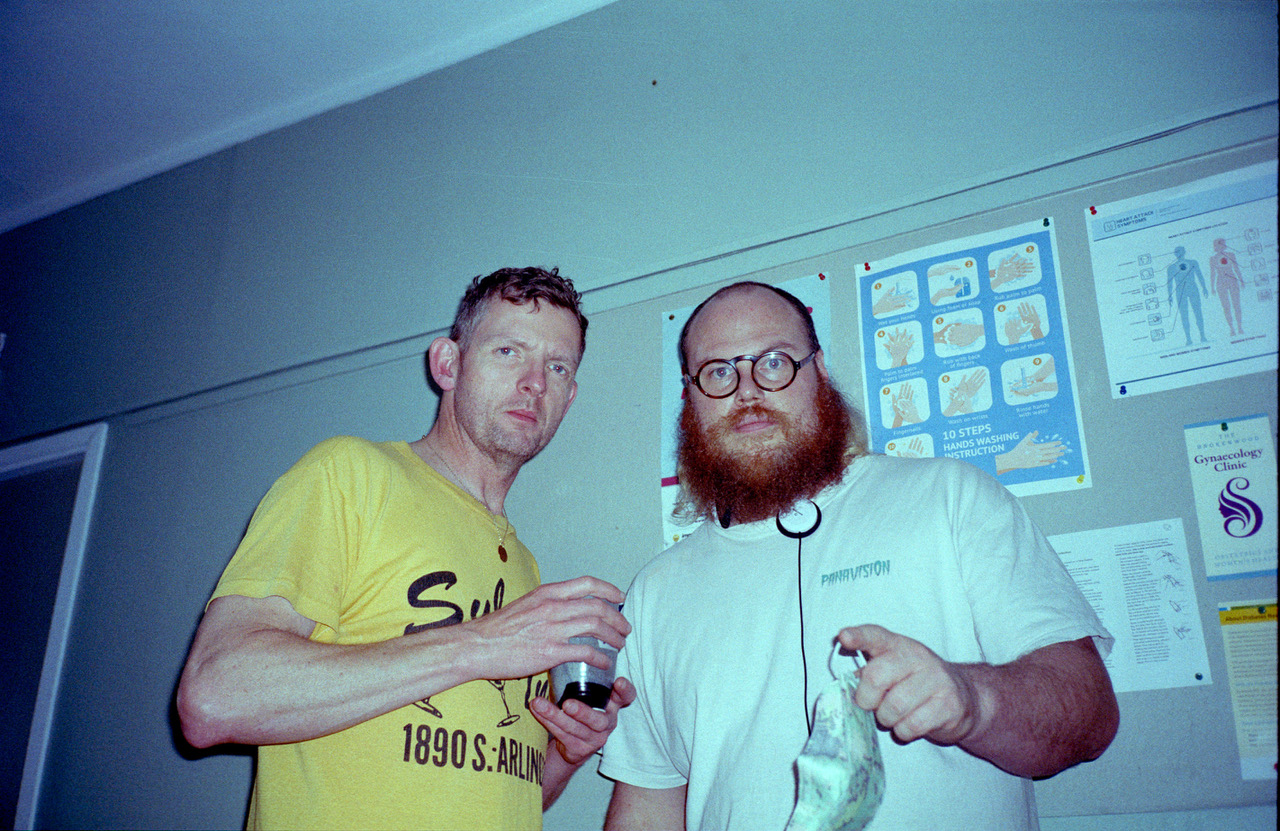
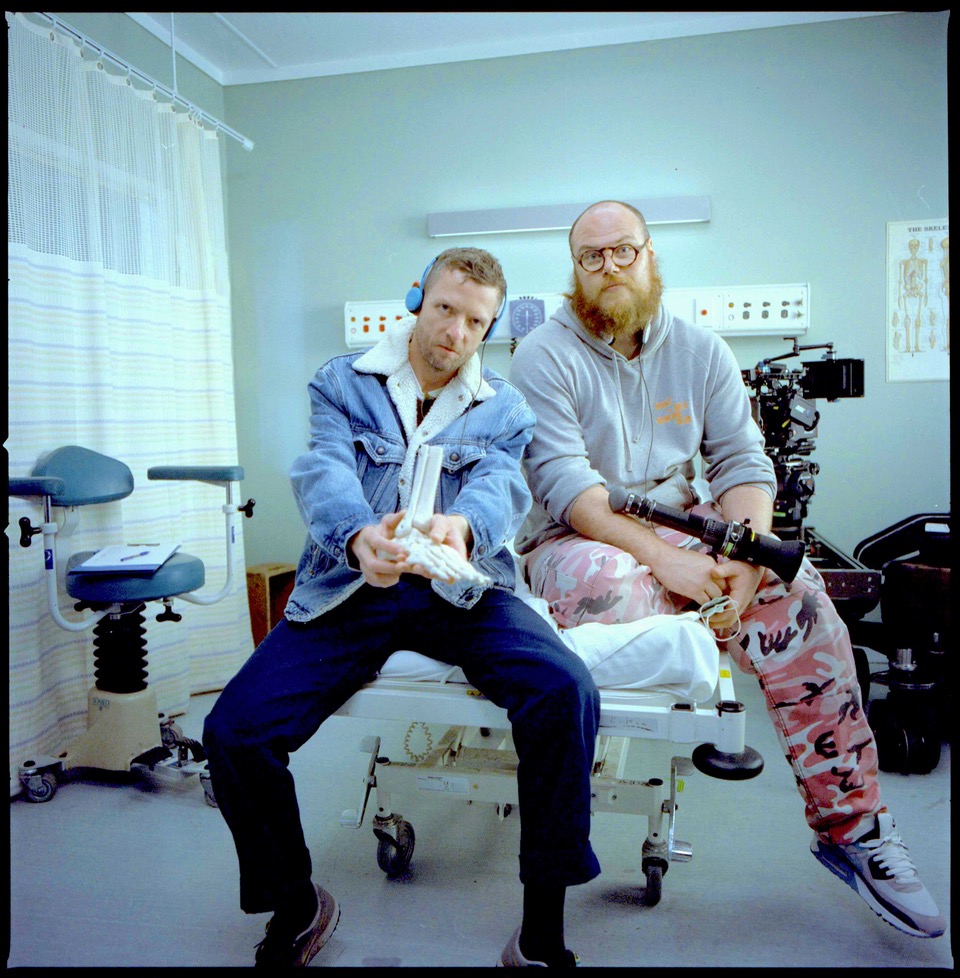
SN:
Is there an actor/actress/composer/etc - alive or dead - that you’d love to cast or work with?
JD:
SO MANY! We’ll stick to dead ones just to avoid jinxing it: Paul Muni - Gordon Willis - Sally Menke - Ennio Morricone - Brittany Murphy - Toshirô Mifune - Peter Sellers - Ingrid Bergman - Bruce Lee - Philip Seymour Hoffman - Robin Williams - Aaliyah...
SN:
Tell us about the last things you read, or the last album you discovered, or the last thing you planted in the garden, or the best meal you’ve ever created in your life. Whatever.
SW:
Reading feels like it's getting harder and harder the more our brains get accustomed to hitherto unimaginable levels of stimulation. Like how people, (recently including myself) have taken to listening to podcasts when going to sleep. We now need stimulation even in the realm of unconsciousness. But it's nothing a good reset can't treat. I've cycled to Wellington a couple of times and replaced a phone with a paperback, Spotify with the sound of silence and it gets your brain back to baseline surprisingly quickly. I'm currently lolling my way through a David Sedaris book in moments of calm.
To discover more of THUNDERLIPS's work and porfolio click here.
